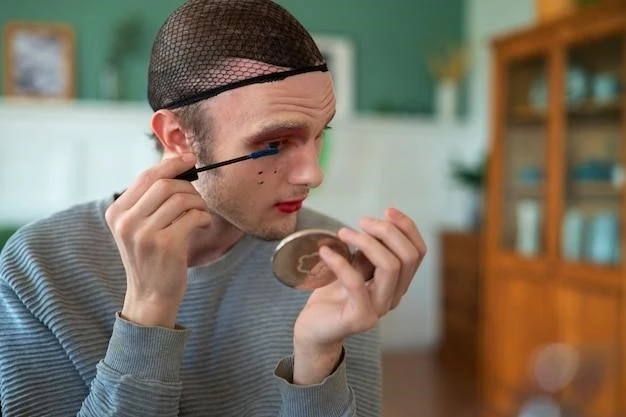Introduction to Pavone–Fiumara–Rizzo Syndrome
The Pavone-Fiumara-Rizzo Syndrome is a very rare condition characterized by webbed fingers and toes‚ cataracts‚ and mental retardation․
Definition and Overview
Pavone–Fiumara–Rizzo Syndrome‚ a rare condition‚ is mainly characterized by webbed fingers and toes‚ cataracts‚ and mental retardation․ It is a complex disorder with unique clinical features that require comprehensive medical management․
Causes and Risk Factors
The Pavone–Fiumara–Rizzo Syndrome is believed to have a genetic basis‚ with potential environmental influences also playing a role in the development of this rare condition․
Genetic Basis
Rare Pavone–Fiumara–Rizzo Syndrome is primarily linked to genetic factors‚ potentially influenced by environmental triggers‚ presenting a complex diagnostic challenge requiring specialized medical attention․
Potential Environmental Influences
Environmental factors may potentially contribute to the development of Pavone-Fiumara-Rizzo Syndrome‚ although the primary basis of the condition lies within genetic predispositions․ Understanding these environmental influences is crucial for comprehensive management․

Symptoms and Clinical Manifestations
A rare syndrome characterized mainly by webbed fingers and toes‚ cataracts‚ mental retardation‚ sloping forehead‚ thick lips‚ and more․
Primary Characteristics
The Pavone–Fiumara–Rizzo Syndrome‚ a very rare condition‚ presents primary characteristics including webbed fingers and toes‚ cataracts‚ and mental retardation‚ along with distinctive facial and physical features․
Associated Physical Features
Aside from the primary characteristics‚ individuals with Pavone-Fiumara-Rizzo Syndrome may exhibit distinctive facial features like a sloping forehead‚ thick lips‚ thick eyebrows‚ short upper lip groove‚ puffy eyelids‚ long nose‚ large ear‚ and increased body hair․
Diagnosis and Evaluation
A comprehensive diagnosis of Pavone–Fiumara–Rizzo Syndrome involves medical history‚ physical examination‚ genetic testing‚ and imaging studies to confirm the presence of distinctive clinical features․
Medical History and Physical Examination
Diagnosing Pavone-Fiumara-Rizzo Syndrome typically involves a detailed medical history review and a thorough physical examination to identify key clinical features such as webbed fingers and toes‚ cataracts‚ and distinctive facial characteristics․
Genetic Testing and Imaging Studies
To confirm the diagnosis of Pavone-Fiumara-Rizzo Syndrome‚ genetic testing and imaging studies play a crucial role in identifying characteristic features such as syndactyly‚ mental retardation‚ and other associated abnormalities․
Management of symptoms and multidisciplinary care are vital aspects of addressing Pavone–Fiumara–Rizzo Syndrome․
Management of Symptoms
For individuals with Pavone-Fiumara-Rizzo Syndrome‚ effectively managing symptoms and coordinating multidisciplinary care are essential components of treatment aimed at improving quality of life․
Treatment Approaches
Multidisciplinary Care Team
Managing Pavone-Fiumara-Rizzo Syndrome effectively requires the coordination of a multidisciplinary care team composed of various healthcare professionals working together to address the complex needs of individuals with this rare condition․
Prognosis and Complications
In addressing Pavone–Fiumara–Rizzo Syndrome‚ understanding the long-term outlook and potential risks is crucial for effective management․
Long-Term Outlook
Understanding the long-term outlook of Pavone–Fiumara–Rizzo Syndrome is essential for providing appropriate care and support‚ considering potential challenges and risks that may arise over time․
Potential Risks and Challenges
In dealing with Pavone-Fiumara-Rizzo Syndrome‚ recognizing potential risks and challenges is essential for providing comprehensive care and managing any complications that may arise․

Current Research and Future Directions
Ongoing studies and clinical trials aim to further understand Pavone–Fiumara–Rizzo Syndrome and explore emerging therapies for improved patient outcomes․
Ongoing Studies and Clinical Trials
Research studies and clinical trials are ongoing to further explore Pavone-Fiumara-Rizzo Syndrome‚ aiming to enhance understanding and develop innovative interventions for this rare condition․
Emerging Therapies and Interventions
Ongoing studies aim to explore emerging therapies and interventions for Pavone-Fiumara-Rizzo Syndrome‚ with the goal of improving treatment outcomes and enhancing the quality of life for individuals affected by this rare condition․
